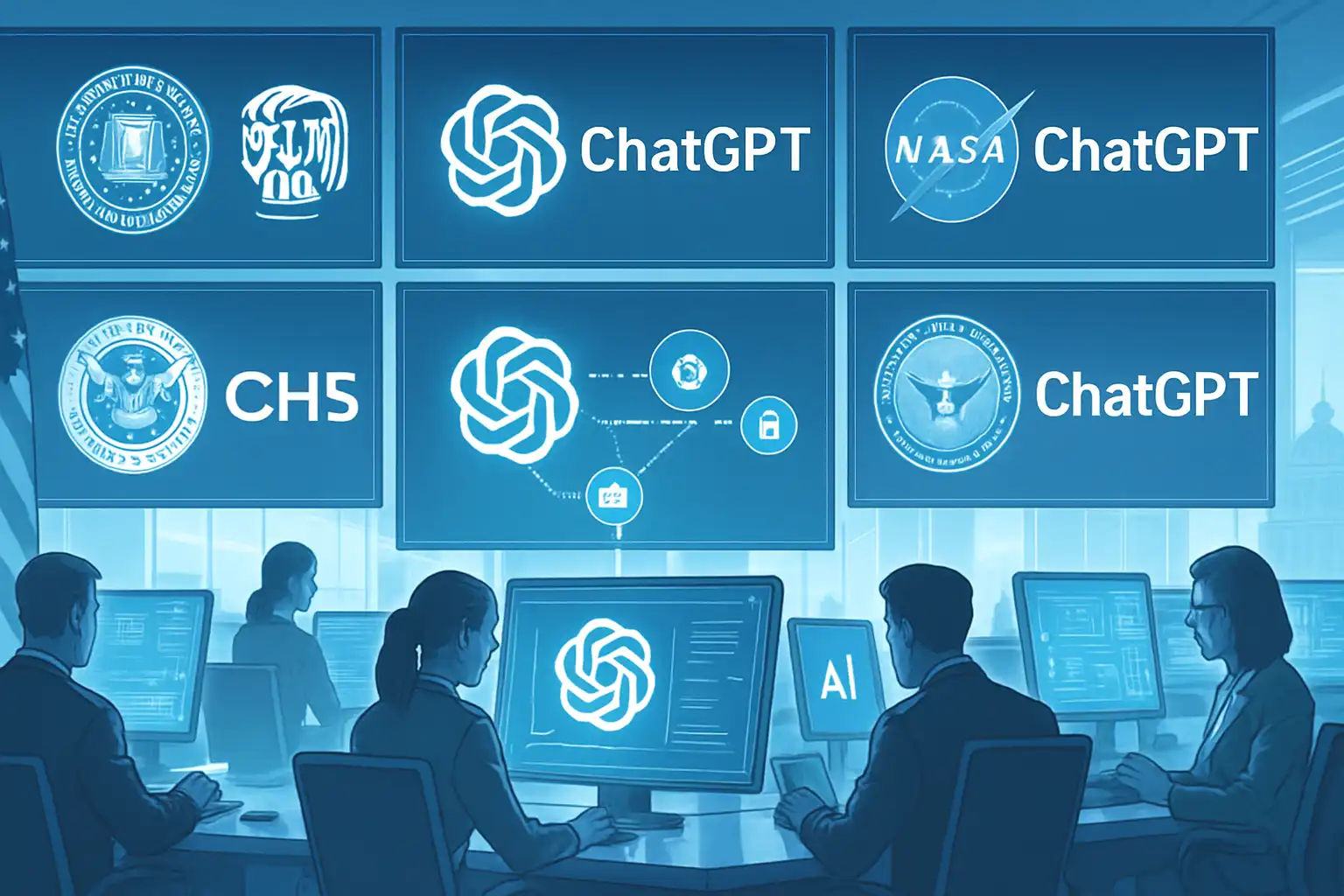President Donald Trump’s AI Deal with OpenAI: Government-Wide ChatGPT Rollout
President Donald Trump’s administration has signed a deal with OpenAI for every federal agency’s ChatGPT Enterprise access. This is a highly controversial deal. While some see it as the future, others fear that it is a dangerous step towards a high-tech dictatorship.
Announced Wednesday by the U.S., as per the General Services Administration (GSA) deal, all federal agencies can access ChatGPT Enterprise for $1 an agency. The aim? Make it easy for the government to use AI.
The GSA notes that this initiative aligns with the White House’s newly released AI Action Plan, which involves a three-prong national strategy to ensure U.S. leadership in artificial intelligence.
The announcement comes after months of ramping up AI advocacy by the Trump administration. One high-profile occasion was the January press conference where OpenAI CEO Sam Altman stood alongside President Trump to claim AI is critical infrastructure.
AI Modernization or Mass Surveillance? The Divided Response
Although this project is being portrayed by the White House as a big victory for technology, critics from across the political, legal, and tech world have raised serious concerns about the ethical and security implications of deploying ChatGPT inside the U.S. government.
Civil liberties advocates and cybersecurity professionals have expressed serious alarm over:
- Data privacy violations
- Censorship and narrative control
- Government surveillance
- Cybersecurity vulnerabilities
- Automated decision-making without human oversight
The central worry? Using large language models, which are created from massive amounts of public data and user-submitted information, poses the risk of becoming black boxes which siphon off data from federal agencies without proper safeguards in place to protect the public and employees from abuse.
Military Already Pumped the Brakes on Generative AI
The concerns aren’t hypothetical. In 2023, the U.S. Space Force imposed a temporary ban on ChatGPT and generative AI software due to the adverse impacts on cybersecurity related to data involving national security.
Lisa Costa, who is the Deputy Chief of Space Operations for Tech and Innovation, said at the time that the widespread military use of AI is risky until data standards of AI providers improve.
The military is not very eager about this while the civilians are quite enthusiastic – which shows a basic clash of trust, transparency, and control.
Sweden’s PM Under Fire for Using AI in Governance: Global Warnings
This is not a discussion limited to the U.S. only. Swedish Prime Minister Ulf Kristersson recently admitted to consulting AI on policy matters, leading to very strong backlash across the Atlantic. His office insisted there were no classified or national security matters discussed with AI, but the news has caused a stir in the global debate on automated governance and AI overreach.
Sam Altman Is Warning That AI Chats Aren’t Private
Even Sam Altman has acknowledged that our conversations are not private – which is rather ironic. In a recent interview, Altman said that the ChatGPT conversations can be subpoenaed in court as there is no promise of confidentiality.
“AI conversations can be searched and seized as per US law,” said Altman. “There aren’t any privacy rights built into these tools.”
“Federal use of ChatGPT may lead to exposure of private messages. Many are worried about this especially for the legal or surveillance context.”
Conclusion: Innovation or Invasion? The AI Tipping Point Has Arrived
The decision of the Trump administration to embed ChatGPT into every federal agency will completely change the landscape of the relationship that the U.S. Government has with technology. Described as modernization, the deal also opens the floodgates to queries over civil freedom, state surveillance, and the future of public trust in a world where AI writes the rules – and possibly enforces them.
Whether it is a digital renaissance or a descent into dystopia will depend on who controls the algorithms and how.



























